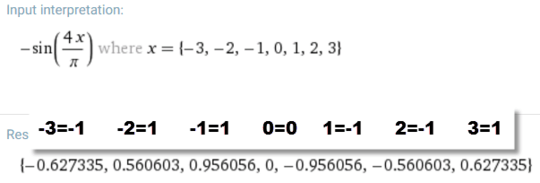71
11
Given two string inputs of "Rock", "Paper", or "Scissors", determine the outcome of the RPS round. Output 1 if the first player wins, -1 if the second player wins, or 0 for a tie.
Rock Rock -> 0
Rock Paper -> -1
Rock Scissors -> 1
Paper Rock -> 1
Paper Paper -> 0
Paper Scissors -> -1
Scissors Rock -> -1
Scissors Paper -> 1
Scissors Scissors -> 0
You must use the exact strings "Rock", "Paper", and "Scissors" as inputs. You may choose whether the first players' choice is (consistently) given first or second. You may alternatively take them as a single input with a single-character or empty separator. The input is guaranteed one of the 9 possible pairings of the three choices in your input format.
The output should be a number 1, 0, or -1, or its string representation. Floats are fine. So are +1, +0, and -0.
Related: Coding an RPS game
Leaderboard:
var QUESTION_ID=106496,OVERRIDE_USER=20260;function answersUrl(e){return"https://api.stackexchange.com/2.2/questions/106496/answers?page="+e+"&pagesize=100&order=desc&sort=creation&site=codegolf&filter="+ANSWER_FILTER}function commentUrl(e,s){return"https://api.stackexchange.com/2.2/answers/"+s.join(";")+"/comments?page="+e+"&pagesize=100&order=desc&sort=creation&site=codegolf&filter="+COMMENT_FILTER}function getAnswers(){jQuery.ajax({url:answersUrl(answer_page++),method:"get",dataType:"jsonp",crossDomain:!0,success:function(e){answers.push.apply(answers,e.items),answers_hash=[],answer_ids=[],e.items.forEach(function(e){e.comments=[];var s=+e.share_link.match(/\d+/);answer_ids.push(s),answers_hash[s]=e}),e.has_more||(more_answers=!1),comment_page=1,getComments()}})}function getComments(){jQuery.ajax({url:commentUrl(comment_page++,answer_ids),method:"get",dataType:"jsonp",crossDomain:!0,success:function(e){e.items.forEach(function(e){e.owner.user_id===OVERRIDE_USER&&answers_hash[e.post_id].comments.push(e)}),e.has_more?getComments():more_answers?getAnswers():process()}})}function getAuthorName(e){return e.owner.display_name}function process(){var e=[];answers.forEach(function(s){var r=s.body;s.comments.forEach(function(e){OVERRIDE_REG.test(e.body)&&(r="<h1>"+e.body.replace(OVERRIDE_REG,"")+"</h1>")});var a=r.match(SCORE_REG);a&&e.push({user:getAuthorName(s),size:+a[2],language:a[1],link:s.share_link})}),e.sort(function(e,s){var r=e.size,a=s.size;return r-a});var s={},r=1,a=null,n=1;e.forEach(function(e){e.size!=a&&(n=r),a=e.size,++r;var t=jQuery("#answer-template").html();t=t.replace("{{PLACE}}",n+".").replace("{{NAME}}",e.user).replace("{{LANGUAGE}}",e.language).replace("{{SIZE}}",e.size).replace("{{LINK}}",e.link),t=jQuery(t),jQuery("#answers").append(t);var o=e.language;/<a/.test(o)&&(o=jQuery(o).text()),s[o]=s[o]||{lang:e.language,user:e.user,size:e.size,link:e.link}});var t=[];for(var o in s)s.hasOwnProperty(o)&&t.push(s[o]);t.sort(function(e,s){return e.lang>s.lang?1:e.lang<s.lang?-1:0});for(var c=0;c<t.length;++c){var i=jQuery("#language-template").html(),o=t[c];i=i.replace("{{LANGUAGE}}",o.lang).replace("{{NAME}}",o.user).replace("{{SIZE}}",o.size).replace("{{LINK}}",o.link),i=jQuery(i),jQuery("#languages").append(i)}}var ANSWER_FILTER="!t)IWYnsLAZle2tQ3KqrVveCRJfxcRLe",COMMENT_FILTER="!)Q2B_A2kjfAiU78X(md6BoYk",answers=[],answers_hash,answer_ids,answer_page=1,more_answers=!0,comment_page;getAnswers();var SCORE_REG=/<h\d>\s*([^\n,]*[^\s,]),.*?(\d+)(?=[^\n\d<>]*(?:<(?:s>[^\n<>]*<\/s>|[^\n<>]+>)[^\n\d<>]*)*<\/h\d>)/,OVERRIDE_REG=/^Override\s*header:\s*/i;body{text-align:left!important}#answer-list,#language-list{padding:10px;width:290px;float:left}table thead{font-weight:700}table td{padding:5px}<script src="https://ajax.googleapis.com/ajax/libs/jquery/2.1.1/jquery.min.js"></script> <link rel="stylesheet" type="text/css" href="//cdn.sstatic.net/codegolf/all.css?v=83c949450c8b"> <div id="answer-list"> <h2>Leaderboard</h2> <table class="answer-list"> <thead> <tr><td></td><td>Author</td><td>Language</td><td>Size</td></tr></thead> <tbody id="answers"> </tbody> </table> </div><div id="language-list"> <h2>Winners by Language</h2> <table class="language-list"> <thead> <tr><td>Language</td><td>User</td><td>Score</td></tr></thead> <tbody id="languages"> </tbody> </table> </div><table style="display: none"> <tbody id="answer-template"> <tr><td>{{PLACE}}</td><td>{{NAME}}</td><td>{{LANGUAGE}}</td><td>{{SIZE}}</td><td><a href="{{LINK}}">Link</a></td></tr></tbody> </table> <table style="display: none"> <tbody id="language-template"> <tr><td>{{LANGUAGE}}</td><td>{{NAME}}</td><td>{{SIZE}}</td><td><a href="{{LINK}}">Link</a></td></tr></tbody> </table>

Does a single input with empty separator mean for example "rockpaper"? – Emigna – 2017-01-11T21:25:08.453
1@Emigna Yes, but capitalized as
RockPaper. – xnor – 2017-01-11T21:26:13.69315That was WAY more fun than I had anticipated, my lord there are some cool ways to do this. – Magic Octopus Urn – 2017-01-11T21:30:37.177
Can the input be an array of the two strings? – Luis Mendo – 2017-01-11T22:33:11.447
@LuisMendo Yes. – xnor – 2017-01-11T22:34:28.547
Wow, I completely agree with @carusocomputing There is currently more than one page of answers, and almost none of these use the same method twice. Usually you see a lot of: Port of Person's answer, or similar approaches done individually by different persons a lot more, but not with this challenge (so far). – Kevin Cruijssen – 2017-01-12T11:01:35.550
Bonus for including Lizard Spock ;) – Tobias Kienzler – 2017-01-12T20:34:26.480
So the input must be a single argument of a string containing both plays? It can't be 2 input strings? – Carcigenicate – 2017-01-12T20:49:20.777
@Carcigenicate No, that's an optional alternative. – xnor – 2017-01-12T21:40:39.560
@xnor OK, good. Should like halve the length of my solution lol. – Carcigenicate – 2017-01-12T21:42:46.040
The 'Winners by Language' thing doesn't work for me. – 0WJYxW9FMN – 2017-01-13T22:08:18.087
How did I get more points than the question itself? For shame to you question non-voters! – Magic Octopus Urn – 2017-01-24T21:29:11.027